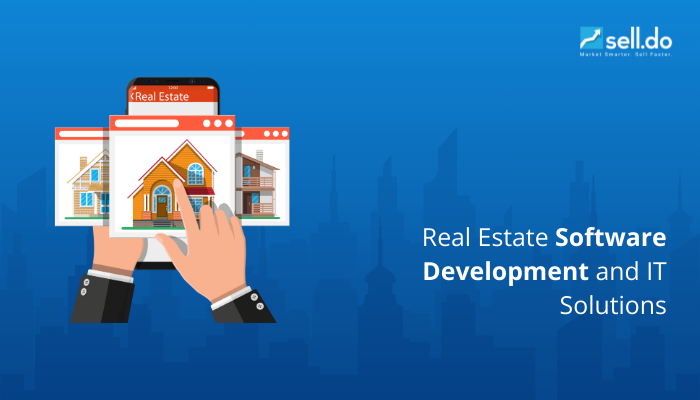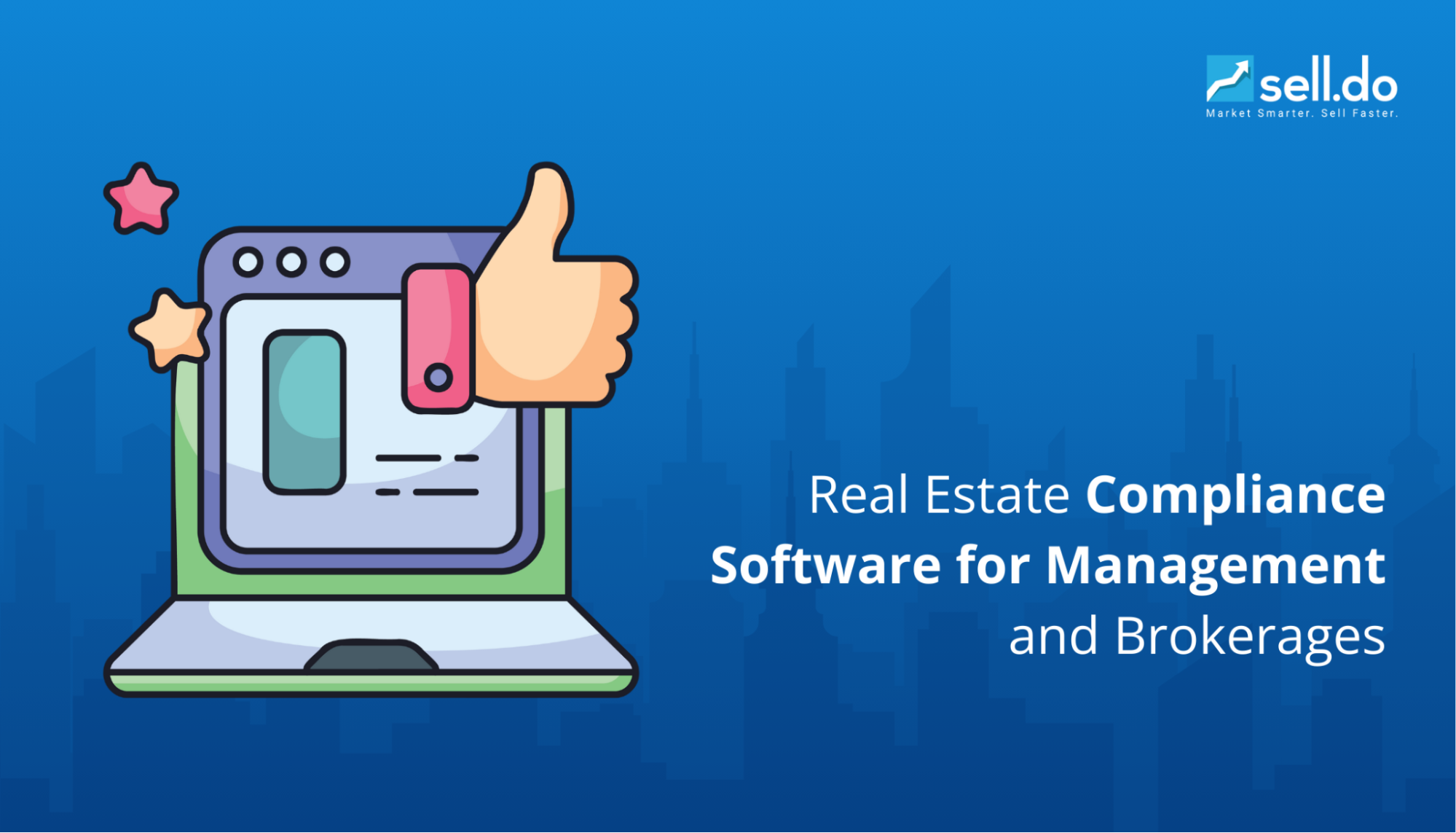How is technology redefining the real estate field? The rise of Proptech is transforming how properties are bought, sold, and managed, creating unparalleled efficiency and innovation. From AI-powered analytics to virtual property tours, these advancements are shaping the future of real estate.
In this blog, we’ll explore the latest proptech insights, uncovering emerging trends and opportunities that real estate professionals need to stay ahead. Whether you're a developer or a broker, understanding these shifts is crucial to thriving in an increasingly tech-driven industry.
Let’s get started!
Understanding Proptech and its Importance
Proptech, or property technology, refers to the use of technology to enhance and streamline real estate operations. It covers innovations like AI, VR, IoT, and blockchain to improve property transactions, management, and customer experiences. Here’s why Proptech is important:
- Boosts operational efficiency by automating tasks.
- Enhances customer experience with tools like virtual tours.
- Improves decision-making with data-driven insights.
- Simplifies property management through smart technologies.
- Helps stay competitive in a rapidly evolving market.
As the real estate industry embraces the shift toward innovation, PropTech plays a pivotal role in redefining how properties are managed, marketed, and transacted.
Recommended read: Top Social Media Tools for Real Estate Agents.
Digital Transformation in the PropTech Market
Technologies such as AI, blockchain, and VR are revolutionizing property transactions, management, and customer engagement, offering valuable PropTech insights for the future.
Significance of Ongoing Digital Transformation
Below are some key statistics highlighting the digital transformation shaping prop-tech insights:
- AI is becoming a game-changer in the real estate sector. McKinsey reports that generative AI could create between $110 billion and $180 billion or more in value for the industry.
- The global AI in real estate market, valued at $2.9 billion in 2023, is projected to reach $41.5 billion by 2033, with a CAGR of 30.5% (Market.us).
- The use of AI in real estate niche is expected to grow to $731.59 billion by 2028 at a CAGR of 34.0% (The Business Research Company).
- With a focus on operational efficiency and customer satisfaction, PropTech advancements are making processes like property search, valuation, and management more streamlined and transparent.
- Virtual property tours, AI-driven insights, and blockchain-backed transactions are enhancing convenience, reducing errors, and building trust.
- The rapid growth of AI in real estate shows a great opportunity for partnerships and innovation. For instance, AI is expected to add between $110 billion and $180 billion in value to the industry (McKinsey).
Opportunities for Networking and Collaboration
PropTech's rapid growth has created numerous opportunities for professionals to connect, share insights, and foster innovation. Here are some key platforms driving collaboration:
Global Events:
Events like Blueprint and REAL PropTech Conference offer platforms for professionals to connect, share insights, and form strategic alliances (Future Market Insights).
Highlights from India:
- The India PropTech Summit 2024, hosted by Aurum PropTech in Mumbai, brings together industry leaders to discuss the future of real estate technology.
- The PropTech Summit 2024 by MicroMitti in Indore focuses on advancements in real estate investments and technology.
Such networking opportunities enable startups, investors, and established firms to collaborate on solutions addressing industry challenges, such as sustainable development and customer experience enhancements.
Also, check out our blog, Top 20 Innovative Real Estate Tech Startups.
Sustainability and Smart Building Solutions
Sustainability and smart technologies are reshaping real estate, driving prop-tech insights by reducing emissions, conserving resources, and enabling efficient, eco-friendly solutions.
Role of Sustainability in the Built Environment
India is at the forefront of sustainable transformation, driven by initiatives like the Smart Cities Mission, affordable housing schemes, and green certifications like LEED and BREEAM.
- Over 14,510 green projects in India cover a green footprint of 12.3 billion sq. ft., making it the second-largest country in green building footprint globally (IGBC).
- The India Green Building Council (IGBC) has facilitated over 5,820 certified projects, with more than 1,000 in collaboration with the government (IGBC).
- India ranked third globally in the USGBC’s list of Top 10 Countries for LEED certification, with 248 projects covering 7.2 million GSM in 2023 (USGBC).
- Green buildings in India reduce water consumption by 30–50% and energy costs by 20–30% (IGBC).
Impact of Greenhouse Gas Emissions from Buildings
Buildings contribute significantly to greenhouse gas emissions due to their high energy demands for heating, cooling, and lighting.
- Buildings contribute to 40% of global energy use and 30% of worldwide emissions (ResearchGate).
- Retrofitting and green building practices can drastically cut emissions, reduce operational energy costs, and improve resource efficiency.
Demand and Strategies for Retrofitting Existing Infrastructure
In India’s real estate sector, retrofitting existing buildings to align with modern sustainability standards is becoming an increasing trend. Key strategies include:
- Energy-Efficient Systems: Incorporating solar panels, energy-efficient HVAC systems, and LED lighting.
- Smart Technologies: Deploying IoT devices for real-time energy monitoring and optimization.
- Water Management Solutions: Implementing rainwater harvesting and greywater recycling systems.
- Green Materials: Using recycled and sustainable materials for renovations.
Government support also drives retrofitting efforts: IGBC-certified projects receive incentives in 14 Indian states, making sustainability upgrades more accessible.
As we explore prop-tech insights, it's essential to look into the practical applications and challenges that come with implementing smart building solutions.
Planning to optimize your website? Check the Top Real Estate Website Builders.
Smart Building Use Cases and Challenges
Smart buildings leverage advanced technologies to enhance efficiency, comfort, and sustainability.
Optimizing Building Operations
- Energy Management: IoT-enabled systems enable real-time monitoring and control of energy use, resulting in cost savings and reduced environmental impact. For example, automated lighting adjusts based on natural light and occupancy, optimizing energy efficiency.
- Predictive Maintenance: Utilizing AI and machine learning algorithms can predict equipment failures before they occur, enabling proactive maintenance. This approach minimizes downtime and extends the lifespan of building systems.
Identifying Problems Before Implementation
Before integrating smart technologies, it's crucial to conduct a thorough assessment to identify existing issues and determine the most effective solutions.
- Needs assessment: Identifying a building's specific requirements and challenges ensures that technologies implemented solve real problems without introducing unnecessary complexity.
- Stakeholder Engagement: Involving all relevant parties, including facility managers, occupants, and IT personnel, helps identify pain points and set realistic goals for smart building initiatives.
Improve your conversions by automating Lead Follow-up with Sell.Do
Challenges in Smart Building Management

Below are some of the challenges you may face in smart building management:
- Integration Complexity: Combining various smart systems into a cohesive network can be technically challenging, often requiring specialized knowledge and significant investment.
- Data security concerns: Greater connectivity brings increased cyber threats. Protecting sensitive data and ensuring system security are crucial to maintaining trust and operational integrity.
- High Implementation Costs: The initial investment for smart technologies can be substantial, posing a barrier for some organizations. However, long-term savings and efficiency gains often justify the expenditure.
- Maintenance and Upkeep: Smart systems require ongoing maintenance and updates to function optimally, necessitating continuous resource allocation and expertise.
Addressing these challenges through careful planning and stakeholder collaboration is essential for the successful implementation and management of smart building technologies.
You can also check Marketing Strategies for Real Estate Development.
Building on these prop-tech insights, let's explore how AI is revolutionizing the industry by driving innovation and efficiency across various applications.
Role and Applications of AI in PropTech
Artificial Intelligence (AI) is transforming the real estate industry by improving efficiency, decision-making, and customer experiences.
Practical AI Applications in PropTech
- AI-Powered CRMs: Platforms like Sell.Do leverage AI for intelligent lead capture, nurturing, and analytics, enabling real estate professionals to manage and optimize their sales pipelines effectively. These CRMs streamline workflows, predict buyer behavior, and boost conversion rates, making them indispensable for modern property management.
- Property Valuation: AI-driven Automated Valuation Models (AVMs) analyze market trends, property features, and comparable sales to provide accurate property valuations, aiding investors and buyers in making informed decisions.
- Tenant Screening: AI algorithms assess tenant applications by evaluating credit histories, rental backgrounds, and other relevant data, helping property managers identify reliable tenants and reduce default risks.
- Virtual Tours: AI enhances virtual property tours by customizing experiences based on user preferences, providing real-time information, and answering queries through integrated chatbots, thereby improving customer engagement.
With AI paving the way for innovation, it's time to look ahead at the emerging trends and technologies shaping the future of the proptech market.
Need a tool tailored to your business needs? Check our blog here for Custom Solutions for Real Estate Management Software.
Future Trends in the PropTech Market
The PropTech industry is rapidly evolving, driven by emerging technologies, market demands, and a growing emphasis on sustainability. Let’s explore the key trends shaping its future.
Technological Impacts on Real Estate
- AI and Machine Learning: Advanced algorithms are revolutionizing property valuations, tenant screening, and predictive analytics, making processes faster and more accurate.
- Blockchain Technology: Transforming property transactions by ensuring transparency, security, and efficiency through smart contracts and decentralized ledgers.
- IoT and Smart Buildings: Enhancing building management with real-time monitoring of energy, occupancy, and maintenance needs, promoting cost-effective operations.
- Virtual and Augmented Reality: Allowing immersive property tours and visualization, improving customer experience and engagement.
Potential Future Directions for Market Growth and Development

- Sustainability Initiatives: Increased focus on green technologies and sustainable development, driven by global goals like net-zero carbon emissions by 2070.
- Personalization through AI: Tailored customer experiences powered by data insights, catering to unique preferences and enhancing decision-making.
- Increased Collaboration: Partnerships between startups, tech companies, and traditional real estate firms to bridge the gap between innovation and industry needs.
- Global Expansion: The growth of PropTech solutions in emerging markets, particularly in Asia and Africa, where urbanization is accelerating.
- Government Incentives: Support for PropTech adoption through subsidies, tax breaks, and policy frameworks aimed at modernizing infrastructure and promoting transparency.
The PropTech market is set to grow exponentially as these trends converge, unlocking new opportunities for efficiency, customer engagement, and sustainability in real estate. By embracing innovation and addressing challenges head-on, the industry can pave the way for transformative growth.
Conclusion
Staying updated on the latest proptech insights is no longer optional—it’s essential for staying competitive in today’s real estate market. Emerging technologies like AI, VR, and blockchain are driving efficiency, enhancing customer experiences, and reshaping how real estate professionals operate.
Additionally, for real estate professionals looking to streamline operations and maximize results, tools like Sell.Do CRM offer powerful solutions tailored to the industry. With its advanced features in lead management, marketing automation, and team collaboration, Sell.Do empowers you to stay ahead in a rapidly evolving market.
Get a demo here to learn more!






Leave a comment
Comments (0)
Be the first one to comment.